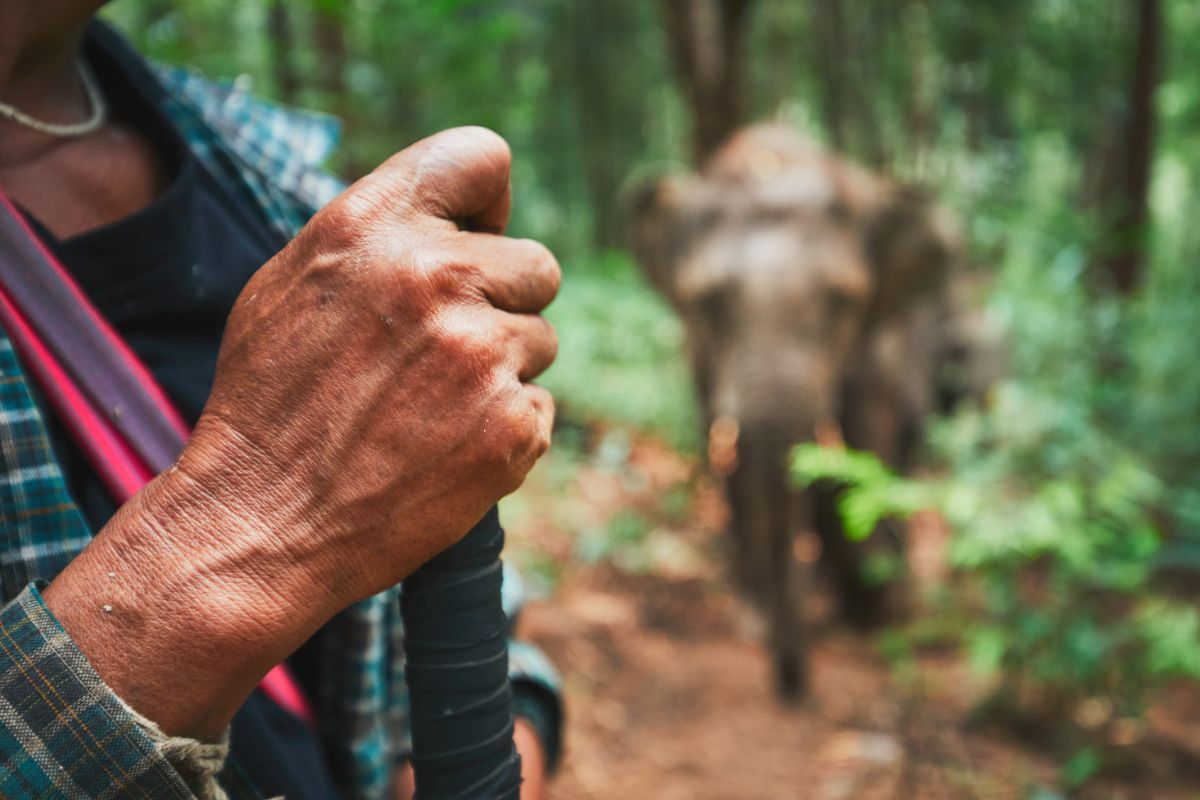
Most of our natural resources are found on land owned by indigenous groups, or inhabited by disenfranchised groups. And yet, many of them have suffered abuse, discrimination, and marginalization.
Such violations are not only an attack on their resources but also on their wellbeing and right to self-determination and autonomy. They are now calling out for drastic social reform. Echoing this call, we recognize that businesses have the opportunity to act out urgent and necessary changes.
There is a strong moral and ethical case to support the notion that businesses must implement management approaches to human rights, and the rights of indigenous peoples. We believe that, as a powerful actor in economic, social, and environmental development in our country, we have an obligation to integrate this principle into how we practice business within our sphere of influence.

The debate about the nature and scope of business entities’ human rights and responsibilities is a recent one, as is the idea of applying human rights to business decisions and operations.
However, the importance of this concept cannot be understated. After all, humans are a part of every aspect of a business’s operations. As such, we cannot simply cordon human rights off in the CSR department.
All company functions, from human resources to legal compliance, interact with human rights every day, whether they realize it or not. True sustainability requires every aspect and department within a business to understand and manage its human rights impacts.
Indigenous peoples’ rights, in particular, have long been neglected by business entities. Their protection is important, as these groups can contribute significant knowledge, helping businesses better understand local operating contexts.
When businesses treat indigenous people with respect, we can obtain and maintain our social license to operate. We believe there are many opportunities, too, to involve indigenous groups in our business ventures, both as owners and partners. This will contribute to the long-term success of our projects, and help embed further value and sustainability in our host communities.
Thus, achieving equality and dignity for all should be the guiding principle of how businesses perform their work. Prioritizing the application of a human rights-based management approach is a must for businesses everywhere.
Aboitiz Group knows we owe our success to the people, and that we are only as strong as the bond we have with our host communities. Thus, we take steps to ensure we not only maintain these meaningful and mutually-beneficial relationships but also foster new ones.
This is why we at Aboitiz Group make sure to deliver on our social commitment, through the countless activities, programs, and advocacy efforts that we implement each year. This helps us contribute to the overall development of our organization as well as the communities we serve.
To become an ever-more reputable and trustworthy partner in nation-building, we know that no one can be left behind. This is how we ensure our projects are inclusive, collaborative, and scalable, and provide much-needed reform to the oft-forgotten marginalized groups.
Our human rights-based management approach can best be summarized through our seven parameters:
Through our seven parameters, we have been able to implement several commitments across our subsidiaries, which all provide inclusive benefits and promote the sustainability and development of our host communities.
While our scope is wide, we do have program areas we hold close to heart in our commitment to being a ‘force for good.’. Our priority program areas are:
Since the inception of the Aboitiz Group, we have invested heavily in providing access to quality education throughout the country. We work with various educational institutions, the Department of Education, and various organizations to execute programs that target those in need.
This helps guide them towards becoming skilled and knowledgeable graduates. In turn, they can become productive members of the workforce.
We also continuously work with our partners to establish and improve learning facilities, set up training programs, and conduct feeding programs to assist local schools and colleges around the country.
One such example of our dedication to this goal is the “Tabang Pa-Eskwela sa Tribo” program. As one of the supporters, Aboitiz Group commits to annually providing school supplies and other needed learning materials to indigenous children. Through this program, we have been able to help over 8,000 indigenous students, particularly those who are from the geographically isolated and economically less-privileged communities of Davao City.
We hope that our assistance helps to motivate and empower these indigenous students to go to school, where they can receive the proper education that will help them later on in life.
We also focus on providing end-to-end, cost-efficient programs for community-based business endeavors. This entails that we provide relevant support to these enterprises, from production to marketing, as well as leveraging resources to establish the infrastructure, financing, and market linkage they need to do business.
This helps us shape and establish resilient communities, and promote their sustainability.
Our recent efforts through our food unit, Pilmico, are a prime example of this. Through them, we committed to sustaining farm livelihood projects for local farmers and Indigenous Peoples in Iligan. This project is supported through close coordination with the area’s LGU and seeks to empower farmers to be efficient ‘agripreneurs,’ and create a more sustainable economy for them.
Aboitiz Group is working with the Marawi Baloi Farmers Association and Hindang Multi-Purpose Cooperative (MPC) through the Inclusive Agribusiness Project (IAP) to scale up their production. This will help local farmers take advantage of the new significant demand for yellow corn. Thus, organizational sustainability and improved, consistent income for their members can be achieved.
To ensure that the fruits of this project can be reaped for years to come, Aboitiz Group also provides skills training, updates on farming equipment, and donations to help increase their production volume and meet market demands.
Our environment initiatives focus on building the resilience and preparedness of our host communities. This entails providing community-based disaster risk reduction and management (CBDRRM) training workshops, which help their people identify local risks and hazards and develop their action plans to mitigate risks.
Our efforts in this priority area are in partnership with the WeatherPhilippines Foundation (WPF) under its #WeatherWiser Nation campaign.
Aside from that, we also have an ongoing project for reforestation and environmental sustainability. As of 2019, we have planted 6.9 million trees out of the 9 million target by 2020. We also implement smaller tree planting initiatives in many of our facilities. Take, for example, Hedcor’s hydro facilities in Davao del Sur, where we recently hit a milestone of 3 million trees planted in our reforestation site, Bakakan E-Camp.
We also maintain the Aboitiz Cleanergy Park, a turtle sanctuary located in the coastal area of Punta Dumalag. Aside from serving as a haven for pawikans, it is also home to dozens of rare bird species. Both thrive in the safe and secure environment that we maintain for them. We are also establishing a new nature sanctuary, the Balabag Wetland Park in Boracay, in collaboration with DENR.
Human rights are the essence of sustainability. We at Aboitiz Group have always firmly believed in the role of community growth in business sustainability and development. Thus, our management approaches to human rights aim to be inclusive, and always aspire to contribute to the wider world.
Simply put, we know that a sustainable world must be built upon the blueprint of basic human dignity and respect. Read more about our commitment to giving back here.